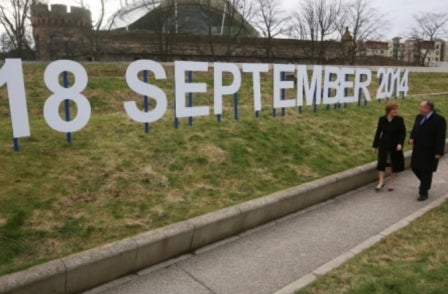
BBC journalists are to be issued with special guidance on how to cover the period leading up to the referendum on Scottish independence this autumn.
The BBC Trust has approved the rules, drawn up by the corporation's chief politics adviser Ric Bailey, which will apply to all BBC news coverage in the 16 weeks leading up to polling day – from 30 May until 18 September.
During this period, the corporation will not commission any polls on how people intend to vote or communicate how many emails or texts it has received expressing support for the yes or no campaign.
On polling day there will be no coverage of any issues relating to the referendum until polls close at 10pm – but stories already published online will remain in the archive.
"Coverage will be restricted to factual ccounts with nothing which could be construed as influencing the vote," the guidelines for polling day state.
Any programme which does not usually cover political subjects or normally invite politicians to participate must get approval before finalising any plans to do so.
Any proposal to conduct text voting on any political issue that could have a bearing on the referendum must also be discussed with the chief adviser.
The BBC Trust said: "The guidelines are intended to offer a framework within which BBC journalists and content producers can deliver impartial and independent reporting, providing audiences with fair coverage and rigorous scrutiny of the policies and campaigns of all relevant parties and campaign groups."
Meanwhile, the allocation of party election broadcasts for the forthcoming European and local government elections will be decided by the BBC in April, after nominations have closed.
Email pged@pressgazette.co.uk to point out mistakes, provide story tips or send in a letter for publication on our "Letters Page" blog

